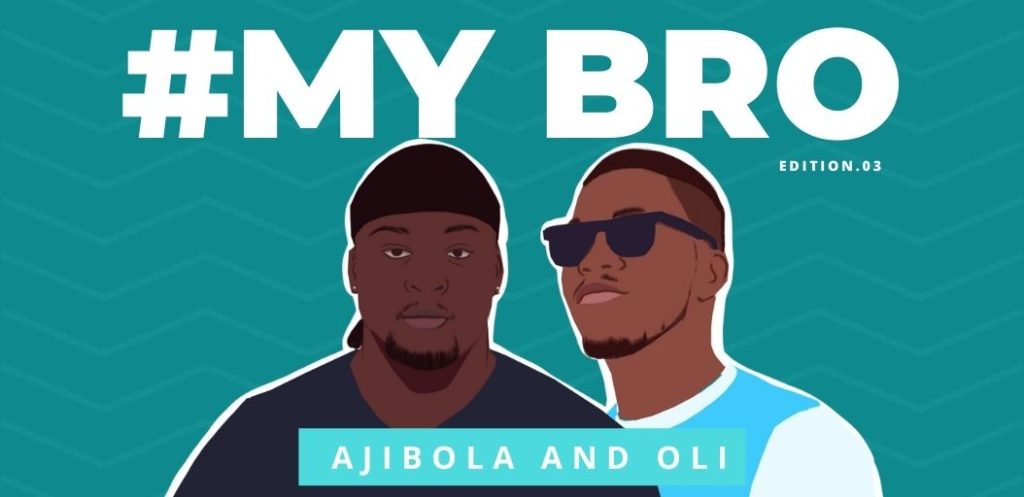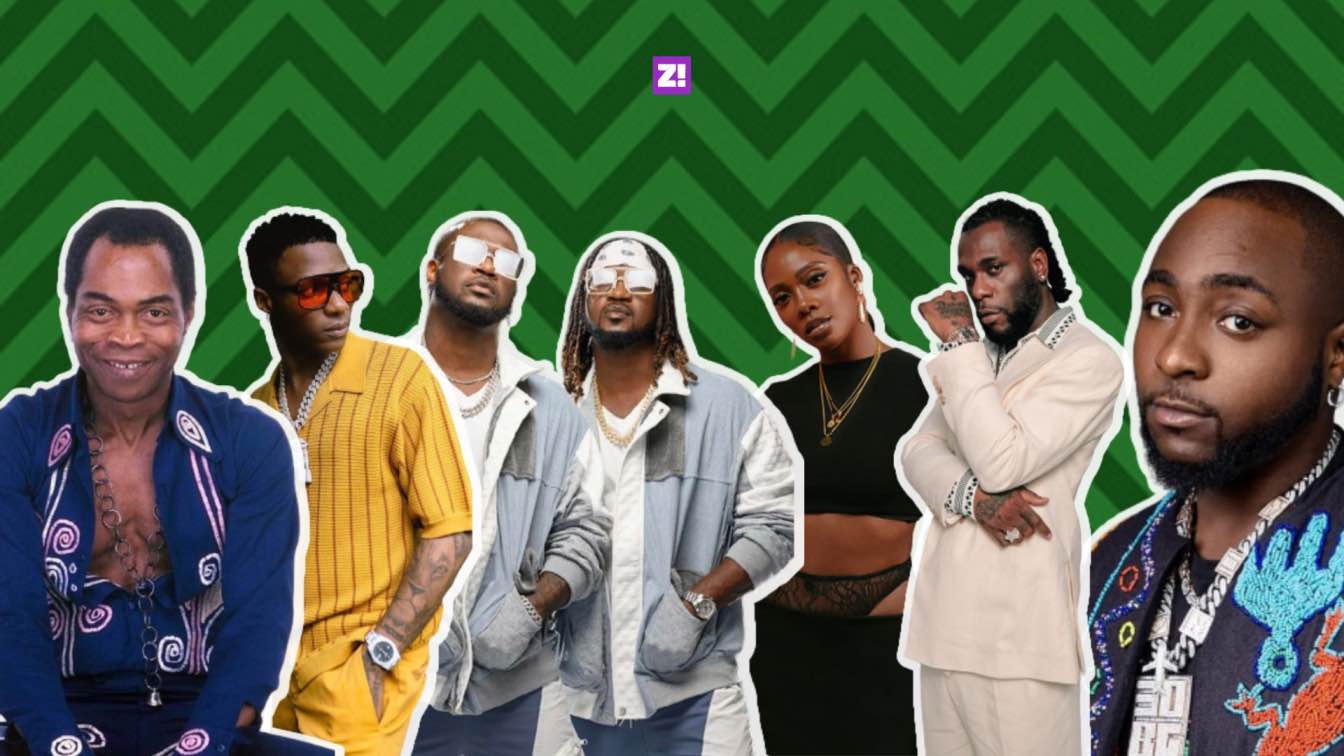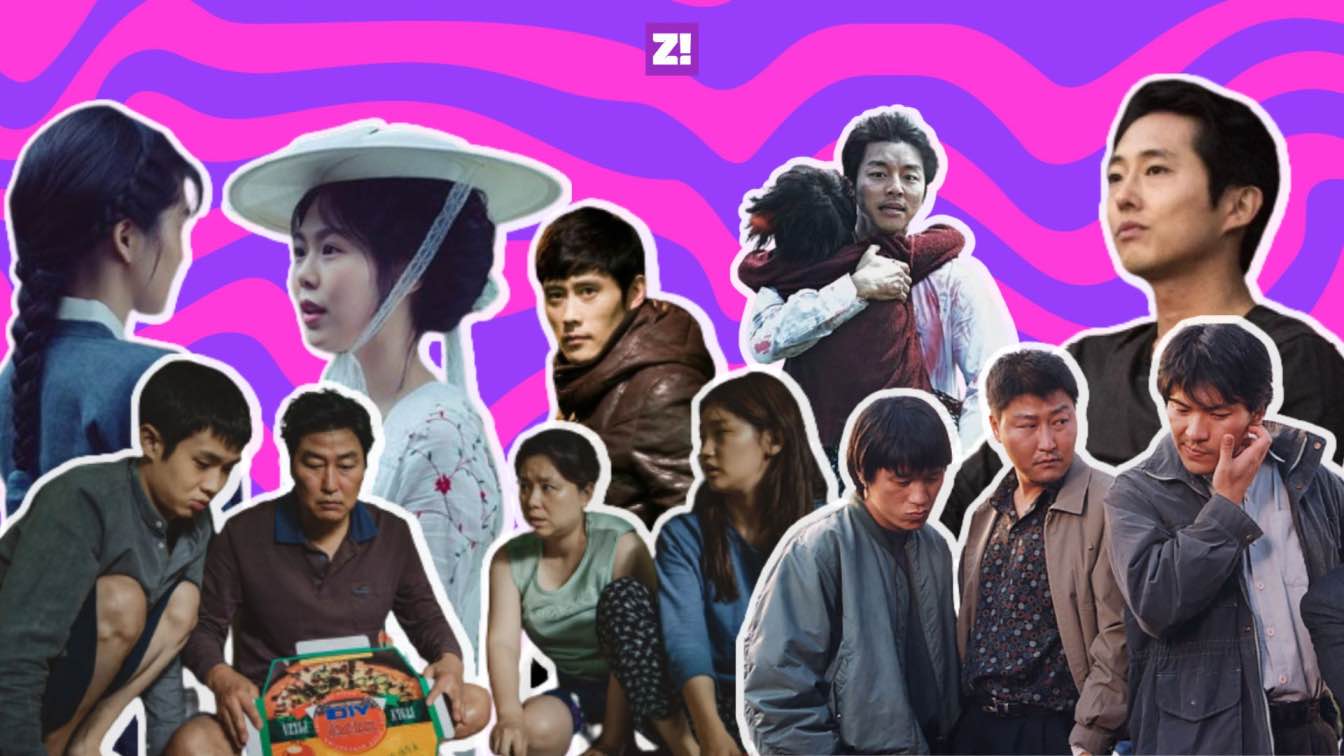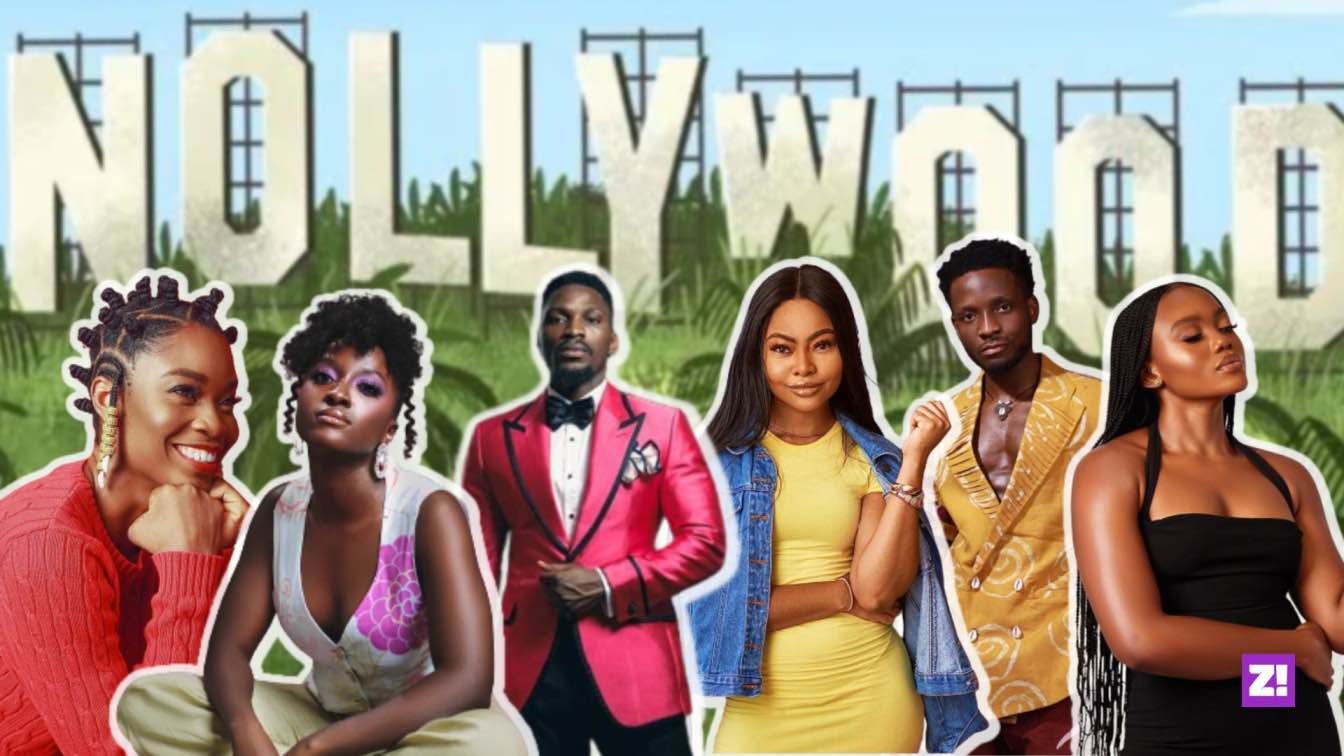What does it mean to be a man? Surely, it’s not one thing. It’s a series of little moments that add up. Man Like is a weekly Zikoko series documenting these moments to see how it adds up. It’s a series for men by men, talking about men’s issues. We try to understand what it means to “be a man” from the perspective of the subject of the week.
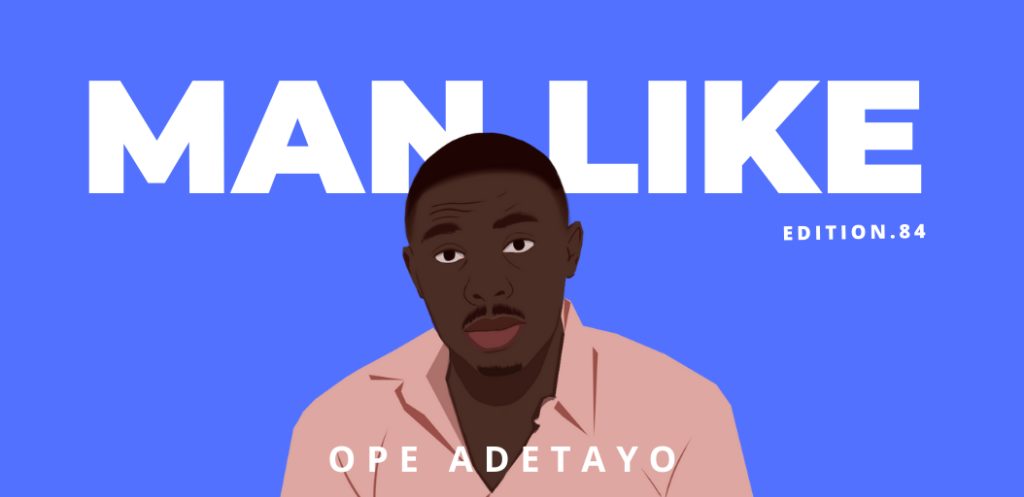
Ope Adetayo has worked his way from humble beginnings on the streets of Mushin to the life he’s always wanted. Before making a name as the internationally-acclaimed journalist with bylines across the globe, Ope knew his potential but still struggled to accept it. “I knew it was a big deal, but the hooligan in me wouldn’t allow me to express my full potential”, he tells me while thinking about the time he missed out on receiving an academic award because he was out “catching cruise”.
In this episode of Man Like, he talks about finding the ginger to escape poverty, how his financial independence has changed his relationship with his parents, handling black tax and why his dad remains the go-to person in his life.
Was there any defining moment when you realised, “Oh shit, I’m now a man”?
I don’t think I ever had a lightbulb moment when I felt like I’d come into my own as a man. I come from what you’d call a low-class family, and I lived in Mushin, where from the very beginning, it was ingrained in my psyche that oyo ni o, meaning that I was on my own. My parents did the best they could with what they had, but the ecosystem in that place always reminded me that I needed to be on my toes. I remember looking around me and thinking, “Omo, this isn’t how life is supposed to be.”
We weren’t poor poor, but things weren’t enough for us. I had to do many odd jobs to hustle to buy books for school. I was one of those guys who’d just stand at the junction hailing people going to work to get some money. Getting into university was not that different because I was now on my own for real, and even though they sent something from home, it didn’t go anywhere. I’ve finally made it out of Mushin and into my apartment somewhere else, and I can say that the feeling is different. Me becoming a man is a culmination of all these experiences.
Wow. What are some of the things you saw that gingered you to hustle hard to leave that life behind?
Let me start by saying that my experience in Mushin is unique to me and not a generalisation of the people there. My family lived in what I’d call a “face me, I slap you” house, and even then, we were better off than most people. Mushin was really fun and interesting for me when it came to vibes, but it was also limiting. I usually tell people that the internet saved me as it was my gateway into other people’s lives. I saw things differently. I saw what my life could look like. The internet helped me become a writer because it’s where I found other people’s stories.
Another pivotal moment that motivated me was a volunteer programme I participated in when I was 19. It was with the Lagos Photo Festival. Their office was on Victoria Island, and for a kid from Mushin, getting to see all those buildings and lifestyles, I felt like a fish out of water. The lightbulb moment was at the festival’s opening when I saw people who literally smelt like money. I left that exhibition and didn’t return to my volunteering job. I got home at about 2 am that day, walked past my friends who were outside drinking and went straight to my room. I was like, “Nah, I can’t continue this way.”
So what did you do?
I’ve always known I could write. I found the work of writers online and knew it was something I wanted to focus on. I started writing more until I got into an editorial internship. The lockdown of 2020 was a turning point because that was when I moved from editorials to writing, and it was a great experience for me. I just kept writing from then on, and well, we’re here.
Now you’re a big man writer in the streets! But do you remember your first major paycheck?
Aljazeera, $500. I was asleep when the money came in, but I knew it was money because it sounded different when I heard the alert. I did the exchange calculation in my head, and then, I withdrew $300 the next day. I spent the entire thing settling bills in my parents’ house. We even had this couch we were so ashamed of, we didn’t like having guests over. I changed it. I’ve bought everything I wanted since then, as long as it was something I could afford.
Funds! But before the writing took off, did you have a conversation with your family about the discontentment you were feeling?
I had an interesting upbringing. My parents gave us free rein to make our decisions and trusted that we’d be okay. My dad never went to my secondary school till I left there, and it wasn’t a case of bad parenting. I don’t think my mother knows what course I studied in uni either.
The only time I had a conversation with them about a life decision was when I switched from science to art class in secondary school. They were against it because they’d just assumed I’d end up as some science genius. I remember I’d won this science competition and the Deputy Governor of Lagos state at the time came to my school to present me with an award. I was out gambling with with my friends that I didn’t even know all of this was happening.
Scrim.
I got to school late and the principal had made everyone on the assembly grounds wait until I showed up. It was a huge deal, but the hooligan “nothing is important” part of me acted like I didn’t care. Anyways, I won other competitions too so the switch from science to art sounded like an abomination to my parents and the people around me.
When I insisted, they stopped the little support they’d been giving me. But I persisted and went to university to study English. Last week, my dad randomly looked at me and said, “Thank you for resisting me”. He was referring to me being stubborn and going against the science thing.
Let’s talk about your dad for a minute.
Yes. I don’t think I give my dad enough credit for his role in my life. Even though we didn’t have a smooth relationship from the start, my dad is one of the most important people in my life. I have a reputation in my family for being proud. Even though I’m the third child, of all my siblings, I’m the one that always argues and won’t shut up. This didn’t always sit well with my dad because we both saw life differently, from politics to social issues — we were diametrically apart. Back then, we would argue, and even my mum would try to step on my feet, signalling me to stop, but I was always insistent on what I believed in. That being said, my dad is the kind of parent who, when you’re sick, will spend every waking moment with you, while my mum is more of a “pay for the bill and go back to work” parent. My mum was my financial support, and my dad was my emotional support.
As I’ve gotten older, my relationship with my dad has evolved into one where he has become my backbone. I call him my PA because I can’t do anything without him. If an extension box goes bad in my house, I’ll call my dad. He put my house together and if he can’t find a solution himself, he’ll find someone who can. I delegate everything to him, and he’s always happy to help. He’ll still send his invoice, though. LOL. When I got my first commission to do a piece about agberos for Al Jazeera, he was the one who took me from bus stop to bus stop. My dad will make it happen if I want to talk to someone from the governor’s house today.
Awww. I love a father-son moment. So how has the change in your finances affected your relationship with your parents?
For my mom, the invoices are never-ending. I’m responsible for my two younger siblings’ well-being, and they are still living with her. So I tell them to collect everything from her, and I’ll transfer the money to her, so she writes everything down. I think our relationship got better. You know when money’s there, things get better. A lot of our frustration was caused by a lack of money. Now she has someone who can free her of some financial burdens. When we meet, we discuss stuff about life, not money. I have always been close with my mom. We’ve been gossip mates since I was in her womb.
Dead. But do you enjoy this black tax life?
I don’t enjoy it o. It’s constantly frustrating. I’m responsible for two human beings: our last born and my immediate younger brother in tech. I take care of their feeding and clothing sometimes. I feel it’s an investment because I want them to get to a place where they can also contribute to my parent’s welfare. But yeah, it’s a lot, being responsible for other people. I don’t hate it, though. I feel it’s necessary, and I can handle it.
Do you miss your life in Mushin now that you’ve moved out?
The funny thing is, I go to Mushin all the time. That’s where 23 years of my life was. To date, that’s where I still feel most at home. Leaving the environment was difficult for me in a way because where I am living is quiet. To tell you how isolated everyone is, I have this friend. Our windows are adjacent to each other, but we only see on Twitter. Mushin is always bubbling with excitement. It’ll always be home to me.
What would you say you have learnt throughout this journey? What lessons has this experience taught you?
It has taught me that if I can keep having a clear vision for my life, and be patient, my dreams are bound to come true.
For someone who understands the importance of vision and going for what you want, does anything scare you?
I’m in mortal fear of looking back and saying I didn’t do enough or could have lived life more than this. And it’s not just in the professional sense because I don’t want my whole life to be about work stuff. I have a life and I want to continue having a life outside Aljazeera, BBC, and Guardian. I don’t want to be Ope Adetayo all the time; I want to be Opeyemi for at least half the day. I want to cruise with my guys.
What would you say are the ingredients to living a happier life, according to Opeyemi?
It’s not just when you can afford a lot that you’re living a happy life. Try as much as possible to enjoy within your means. There’s no one way to enjoy life. Just give room for happiness. Happiness, I think, is manufactured. It’s not the natural state of life. It’s something we invent. Try to invent it constantly.
Check back every Sunday by 12 pm for new stories in the Man Like series. If you’d like to be featured or you know anyone that would be perfect for this, kindly send an email.
Are you a man who would like to be interviewed for a Zikoko article? Fill this form and we’ll be in your inbox quicker than you can say “Man Dem.”
